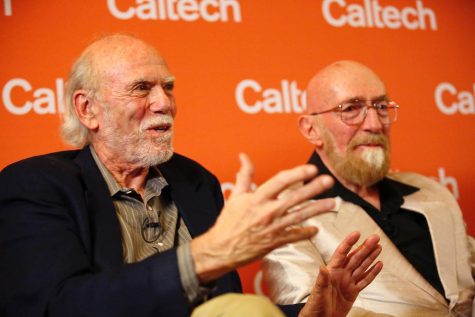Clinton to Democrats: I’m the Obama heir, not Sanders
CHARLESTON, S.C. — If there were any doubt, Sunday’s debate erased it. Hillary Clinton is closely embracing President Barack Obama and essentially offering his third term. Bernie Sanders is offering a clear alternative, promising a “political revolution.”
Sanders wants to revamp the nation’s health care system. Clinton defends Obama’s Affordable Care Act and suggests ways of improving it.
Sanders sees Wall Street as a force of political evil, and charges Clinton is too cozy with big money interests. Clinton scoffed at such ties and lauded Obama for overhauling the nation’s financial regulatory system.
“I’m going to defend President Obama for taking on Wall Street, taking on the finance industry and getting results,” she said.
The Democratic front-runners staked out very separate, distinct identities is Sunday’s final debate before the Feb. 1 Iowa caucuses and the Feb. 9 New Hampshire primary. These sharply-sculpted images will define Clinton, the former secretary of state, and Sanders, a U.S. senator from Vermont, in these final days before the first votes, a time when voters start paying serious attention to the campaigns.
Promoting such strong identities does represent a gamble. Sanders remains largely unknown to most voters, and his campaign is predicated on his tireless devotion to principle. That means he faces scrutiny for any lapse in consistency, and he’s coming under fire for trying to explain why he suddenly reversed his support of limiting liability for gun makers and sellers.
Clinton’s has a different challenge. Last year, she inched away from some administration positions, notably by withdrawing support for the Trans-Pacific Partnership after calling it the “gold standard in trade agreements.” Today, she’s casting herself as the logical heir to that same administration.
Clinton’s third-term pitch does make political sense.
Obama’s remains very popular in Iowa, where he won in 2008 and where 91 percent of Democrats have a favorable opinion of him today, according to a recent DesMoines Register/Bloomberg poll. And when the race moves into South Carolina in mid-February and a host of Southern and Midwestern states in March, all will have sizable black and Latino populations, where the president remains hugely popular.
The debate made clear that what voters will see in the coming weeks are sharp contrasts in three areas that have long stirred Democrats’ passion — health care, guns and financial regulation.
Clinton is a vigorous defender of the 2010 Affordable Care Act, which mandated health coverage for nearly everyone. She pledged to “build and improve on” the law with proposals such as decreasing out of pocket costs and limiting prescription drug costs.
A few hours before the debate, Sanders released a detailed plan for implementing government health care. “Bernie’s plan means no more copays, no more deductibles and no more fighting with insurance companies when they fail to pay for charges,” a plan blueprint explained.
He’d pay for it with higher taxes, notably a 6.2 percent payroll tax on employers and higher income taxes on the wealthy.
No, said Clinton. Why start over again? Why give Republicans, who keep trying to repeal the entire law, a chance to gut it?
Think of the legacy, she urged.
“The Democratic Party in the United States worked since Harry Truman to get the Affordable Care Act passed,” Clinton said. “We finally have a path to universal health care. We’ve accomplished so much already.”
Sanders has probably won his most enthusiastic support throughout the campaign with his protests against Wall Street influence. His charges unleashed a fury Sunday from Clinton.
“Where we disagree is the comments that Senator Sanders has made that don’t just affect me, I can take that, but he’s criticized President Obama for taking donations from Wall Street, and President Obama has led our country out of the Great Recession,” she insisted.
Sanders fired back, referencing the big speech fees she earned after leaving the State Department three years ago.
“Can you really reform Wall Street when they are spending millions and millions of dollars on campaign contributions and when they are providing speaker fees to individuals?” he asked.
Their biggest difference, and the perhaps one that has most potential to swing wavering voters, involves guns.
Clinton and her husband, former President Bill Clinton, have been strong gun control advocates. Bill Clinton in 1993 signed into law the Brady bill, which mandated background checks and a five day waiting period on gun purchases, as well as the 1994 law that included a ban on certain assault weapons.
Sanders comes from a state where gun control’s not widely popular, and voted against the Brady bill. Clinton offered a long, pointed list of gun rights measures she said Sanders has backed. She ended with a somber coda: “Let’s not forget what this is about. Ninety people a day die from gun violence in our country.”
Sanders scoffed, saying, “I think that Secretary Clinton knows that what she says is very disingenuous.”
This much was clear: The Democratic races in Iowa and New Hampshire are no longer just Clinton vs. Sanders. It’s a third term versus a break with the past.










